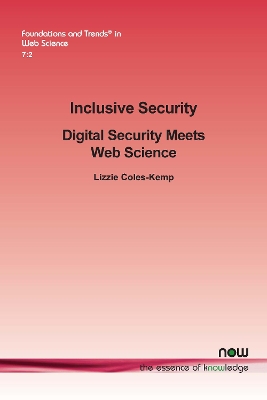Foundations and Trends (R) in Web Science
1 total work
As we become increasingly dependent on digital products in all aspects of our lives, the reliability of that technology increases in importance. Technological security can be thought of as the control of access to technical systems and the control of the use of those systems. However, the way that digital technologies are woven across the fabric of our everyday lives, and are embedded in all our institutions, means that we need a paradigm for understanding technological security as being part of other forms of security. This monograph introduces the paradigm of digital security that not only encompasses the protection of digital technologies and the data it produces but also the practices and processes that link those technologies. It encompasses the political and social processes and practices that shape the meanings and experiences of the digital protection mechanisms. In a digitally mediated society, security of the state, of society, of individuals, and of technologies are bound together through these processes and practices, giving new security meanings to security technologies and policies. Grounded in the interdisciplinary endeavours that characterise Web Science, this monograph presents the case for this more inclusive form of technological security. Such a security places the security of technology in the context of the security of people operating in a web-enabled and digitally-connected society and results in a digital security that responds to the enmeshed nature of technology and society. This monograph situates digital security within the broader landscape of social and political theories of security, and uses a critical security lens to encourage the reader to explore how digitally networked technologies are both included in and influenced by the co-creation of artefacts and practices in open environments.
